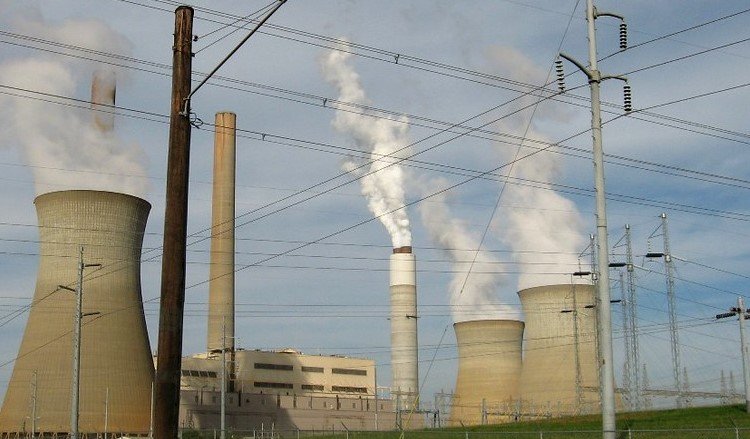Temporary truce between state regulators and utility giant brings relief—but storm-related surcharges and long-term energy demands still loom
Georgia Power customers can breathe a little easier—for now. The state’s largest energy provider has agreed to halt any new rate hikes for the next three years, giving Georgia families and businesses a much-needed break as inflation and energy costs keep rising.
The decision, announced Monday, marks a major shift from the utility’s earlier plans to seek higher rates this year. That move had been fueled by surging demand, mostly from AI-driven data centers that devour electricity like it’s candy. But after back-and-forth negotiations with state regulators, the company has hit the brakes.
Still, it’s not a complete reprieve. Georgia Power says it will ask for some targeted increases to recover millions in storm damage from Hurricane Helene, which walloped the grid last fall.
From potential rate hikes to a surprising freeze
Until now, Georgia Power had been on a steady march toward higher prices. The company, serving more than 2.7 million people, had already pushed through a 12% jump in electric and gas bills since 2023. More rate bumps seemed inevitable.
So when news broke that the utility was backing off, eyebrows went up.
“This is nothing but good news for Georgia Power ratepayers,” Public Service Commission Chairman Jason Shaw said in a statement. “I look forward to delving into the details of this agreement as we conduct our public hearings.”
The timing isn’t accidental either. With two critical seats on the Public Service Commission (PSC) up for grabs in long-delayed elections this summer, public perception matters more than ever.

What’s in the agreement—and what isn’t
Let’s be clear. This freeze isn’t across the board. It applies specifically to Georgia Power’s “base rates”—the standard charges most customers see on their bills every month. But the utility still wants to add some extras to recover storm-related costs.
Hurricane Helene tore through the state last September, knocking out 1,000 miles of power lines and trashing thousands of utility poles. Cleanup and repairs won’t be cheap.
Here’s what customers could still see in their future bills:
-
Temporary surcharges related to infrastructure damage
-
Continued costs tied to energy supply for data centers
-
Possible increases in the event of future disasters or federal policy shifts
A PSC spokesperson confirmed that public hearings will be held soon to debate the storm-recovery charges.
Data centers drive energy demand—and utility profits
It’s no secret: Georgia is becoming a data hub. With tech firms racing to build AI infrastructure, energy demand has gone through the roof.
Georgia Power’s long-term energy forecast—published back in January—estimated the state will need another 8,200 megawatts of power by 2030. That’s enough juice to run about 2 million homes.
The table below highlights key figures from the company’s latest integrated resource plan:
| Category | Forecasted Need | Estimated Completion |
|---|---|---|
| Additional Energy Demand | 8,200 MW | By 2030 |
| New Homes That Could Power | 2 million | – |
| Customer Base Growth | ~5% annually | 2025–2030 |
| Data Centers Expected Online | 20+ | 2024–2027 |
To meet this demand, Georgia Power is planning to expand transmission lines, invest more in renewables, and accelerate retirement of older coal plants.
Federal tax credits quietly soften the blow
Part of the reason this rate freeze is even possible? Uncle Sam’s help.
Georgia Power has quietly stockpiled at least $12 million in federal tax credits for solar panel investments. According to public filings, more credits are flowing in from undisclosed sources—though some documents have been heavily redacted.
The utility also plans to revise its expense reporting by tweaking depreciation schedules on its coal-fired power stations. Essentially, it’s using accounting strategies to stretch out the cost burden over a longer time.
One sentence, just to keep it snappy.
Political backdrop: looming PSC elections
There’s a political current running through all this. Elections for the PSC haven’t happened since 2020, thanks to a federal court battle over voting rules. But they’re finally scheduled for June 17.
Commissioners Tim Echols and Fitz Johnson are both up for re-election. Six challengers are hoping to unseat them. With power costs now a hot-button issue, candidates on both sides are pointing to this rate freeze as proof that oversight matters.
Don’t be surprised if you see this decision featured in campaign ads in the coming weeks.
What’s next for ratepayers?
For most Georgians, the next three years will offer some cost stability—at least on paper. The freeze means no unexpected spikes in base rates, but it doesn’t shield consumers from everything.
Weather events, infrastructure failures, or sudden demand surges could still push bills higher through one-off charges. And let’s not forget inflation—it doesn’t take a vacation.
Customers will also want to keep an eye on how the PSC rules on the upcoming storm damage request. A small surcharge may not sound like much, but if it becomes a recurring habit, those “small” fees can add up fast.
